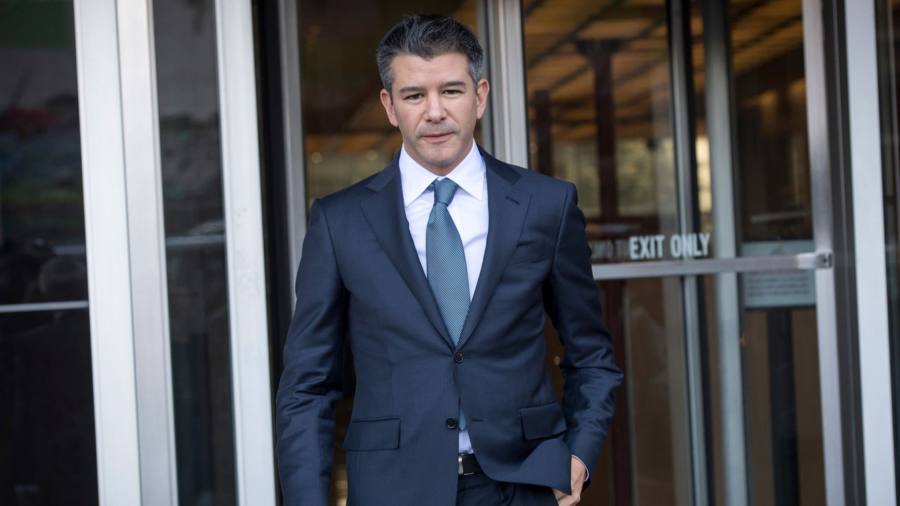
Receive free CloudKitchens updates
We’ll send you a myFT Daily Digest email rounding up the latest CloudKitchens news every morning.
Travis Kalanick’s ghost kitchen start-up CloudKitchens has sacked workers this year and closed locations as it attempts to rein in its expenses amid low occupancy at a number of its warehouses, according to people with knowledge of the matter.
The belt tightening underscores the challenge facing many start-ups after rising interest rates brought an era of free money to an end last year, prompting an abrupt strategy shift from companies that had been prioritising rapid but costly growth.
The company’s buildings were only about 50 per cent full at the end of the first quarter and several sources said CloudKitchens, which leases food preparation space to restaurants, had failed to win as many contracts with the restaurant chains it hoped would supercharge its sales.
The company has closed some buildings it bought, including in New York and Tennessee. It has also been cutting staff numbers, which had grown into the thousands.
In line with those cutbacks, CloudKitchens appears to have dramatically slowed new building purchases, which are almost always conducted through shell companies, an analysis of property records for the Financial Times by CoStar showed. The company has also retooled its model, focusing on smaller warehouses, one of the people added.
A fourth person with knowledge of the company’s business painted a less dire picture, saying the occupancy figures shared with the FT did not account for leases that had been signed but where a new customer was not yet paying rent. That figure, known as the sold rate, was about 73 per cent at the end of the first quarter.
They added that the company had been primarily focused on adding smaller restaurants to its rent rolls and that even with the location closures it would be adding more kitchen space in the coming year as CloudKitchens makes previously purchased properties available to rent.
The difficulties CloudKitchens and Kalanick face are emblematic of the troubles start-ups are experiencing this year as the US economy begins to slow after interest rates rose to 22-year highs. The decision by the Federal Reserve to squeeze money supply in the economy has pushed companies across corporate America to slash costs: Facebook-owner Meta, Google-owner Alphabet and Microsoft have all axed staff.
“He has billions of dollars and the question is, how much does he want to put in the fire burner,” one former CloudKitchens employee said of Kalanick.
Last year, CloudKitchens refinanced debt it had taken on in 2021 from hedge fund King Street Capital, a move that preceded an $850mn funding round later that year from investors including Microsoft.
The newer credit facility — from a group of Wall Street’s biggest banks that included Barclays, Goldman Sachs and JPMorgan Chase — brought the company “cheaper financing” than it had in place from King Street, the people said. It also helped consolidate CloudKitchens’ outstanding debt into a single loan and revolving credit facility.
The banks have sought to establish relationships with CloudKitchens, hoping it will eventually become an IPO candidate in the same vein as Kalanick’s previous endeavour: Uber.
Kalanick and CloudKitchens declined to comment.
Kalanick in 2018 bet big on the idea of turning distressed and second-class real estate into kitchen space for restaurants, which increasingly sell meals through delivery apps such as DoorDash, UberEats and Grubhub. And he has found some success, wooing companies including Starbucks and Chick-fil-A to its buildings.
In 2019, Saudi Arabia’s sovereign wealth fund invested in the business.
But even as CloudKitchens’ footprint has grown, it has struggled to line up as many interested restaurant chains as it had hoped, sources said.
In a sign of the difficulty for the company, a test run by Domino’s in Las Vegas ended with the pizza chain leaving the space when its lease expired, the people added. A Domino’s spokesperson confirmed it had used CloudKitchens for a “preliminary test” but decided not to proceed further.
CloudKitchens has sought to establish relationships with other fast-food chains such as Wendy’s, people involved in the discussions said. However, Wendy’s executives have shifted away from ghost kitchens, announcing this year that they would close US locations they had opened with Reef, a competitor to CloudKitchens.
Wendy’s chief executive said on an earnings call in March that it did “not envision that delivery kitchens will be a large element of our growth trajectory”.
Barclays, Goldman, JPMorgan, King Street, Microsoft and Wendy’s declined to comment.
Restaurant industry executives have offered mixed views on ghost kitchens, which lease unbranded warehouses to make and process delivery orders. While the locations are far cheaper to open than a full-fledged restaurant, they are not always in prime locations.
Small restaurants struggle for visibility on delivery apps, where they compete with established restaurants. One former CloudKitchens employee described it as a “social media marketing game, which is very tough” for the small restaurants that launch their business through a ghost kitchen.